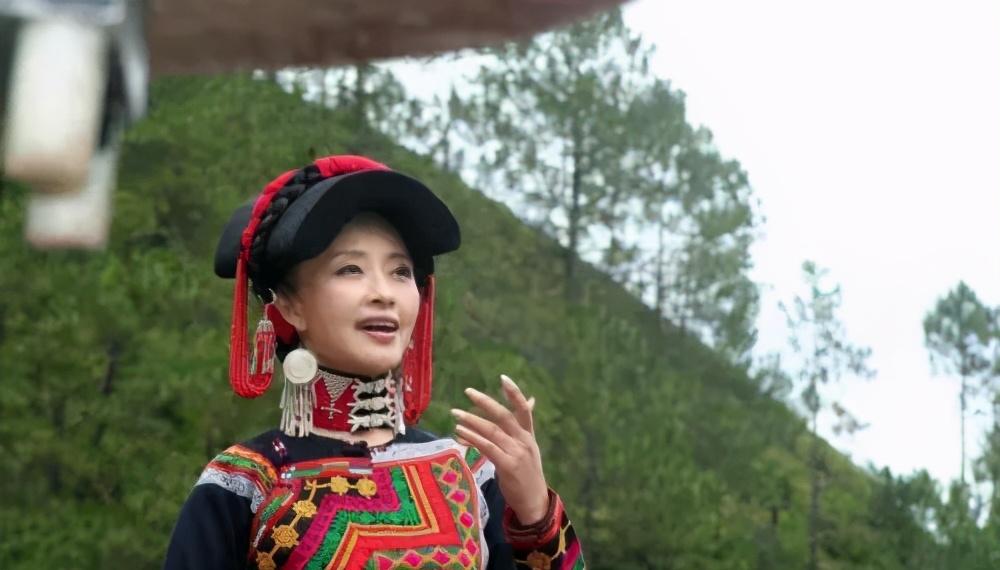In the Yi people, music is not only a culture, but also a national symbol. The Yi songs interpreted from Qubi Awu, "Mountain Eagle Group", "Made by Yi People", Aruadjo, Jike Junyi, Moxizi Poem, One Cloud Group, etc., convey the history and culture of the development of Yi music.

This time, Qubi Awu, a famous national singer and Soprano singer of the Yi ethnic group, after "Kasha sha on Daliang Mountain" and "Distant Guests Please Stay", was born in Liangshan Yi Autonomous Prefecture, Sichuan Province, and Sang "Open Tea Song" in another original ecological way.
"Tea Song"
Sung by: Qubiau
Lyricist: Li Bingxue
QuComposer: Lu Cheng
Arranger Music Arranger: Coco
Guitar Guitar: One
Bamboo Flute Flute: Zhao Xue
Xiao: Zhao Xue
String StringIngs: Asian Philharmonic Orchestra
Back Vocal: A black duck combination
Chorus: Constellation Chorus
Mixed Mixing Engineer: Fu Yao
Conductor: Huang Lijie
Producer: Lu Cheng
Producer: Xiuling Spring
Marketing promotion: Heyi culture
Music Distribution: Baiyi Star Chart
Open the tea
Climb the slippery slope
Cross the slippery hurdles
I stood on the top of the hill
A shout
......
That slippery tea
Piles of mountains
Slippery green mountains and mountains
Slippery tea plantations catch up with cloudy days
The slippery tea picking singing continues
Slippery golden buds can't be harvested
Slippery slopes
Slippery bumps
A slippery mountain dream
Today it's finally round
A leafy bud
A leaf slippery tip
A ridge of slippery spring tea
Make friends with the world
As one of the first peoples to discover, make and drink tea, when it comes to the Yi people, it is necessary to mention tea culture.
"Song of Opening Tea" is a song expressed through the local feelings that were dissolved in the blood of Qubi Awu in his early years, coupled with personal characteristics. Qubiawu's pure watery voice seems to float out of the Yi family cottage, bringing people the charm of mountain music. This song is full of simple folk customs of the Yi family, but they are more like pastoral sketches, more rich in the feminine and simple emotions of the Yi family women, and the song is more affectionate and delicate than Ah Wu's singing.
"That slippery girl, red face... Pick the slippery buds, pluck the slippery tips."
Such colloquial and local lyrics slowly unfold the picture of the hospitality, diligence and simplicity of the tea mountain girl, and the central sentence of "making friends with the world" at the end of the song once again sets off the broad mind of ethnic minorities and tea pickers in the mountains.
In Qubi Awu's songs, we can see various symbolic Elements of Yi culture, and a sense of heaviness and joy permeates the works, and a heavy sense of ritual can be felt in simplicity. Just like this "Song of Opening Tea", Qubi Awu uses painting to interpret music, which is visible music.
Of course, she also has an innate affinity, she is cheerful and straightforward, like a neighbor sister, with a sincere and kind heart to treat everyone around her, and even every time she records a program, it is like a small gathering of relatives and friends. The world of Qubiao is white, as fresh and natural as her singing, simple and beautiful.
The national is the world, Qubi Awu often said, "National art is his lifelong pursuit, as a minority singer, it is the responsibility and obligation to sing the excellent songs of his own nation and pass it on."
Due to the continuous development and progress of society, people's spiritual life has gradually been improved, and national culture has gradually been valued by people. Some time ago, Midea Group hosted the "Midea Autumn Moon Night", in order to let everyone hear the unique sound of Liangshan, but also to let the unique national voice be heard by the world. Netizens boiled up and shouted: "Daliangshan is so beautiful, every frame is wallpaper!", "I didn't expect the Yi music to be so good"... This concert undoubtedly made people hear the most beautiful music of the Yi people and see the most beautiful style of the Yi people.
The Yi people love beauty and like to discover beautiful things. Of course, this is also a beautiful era, traditions need to be heard, Chinese culture can go further, and the national spirit can flow far and wide.